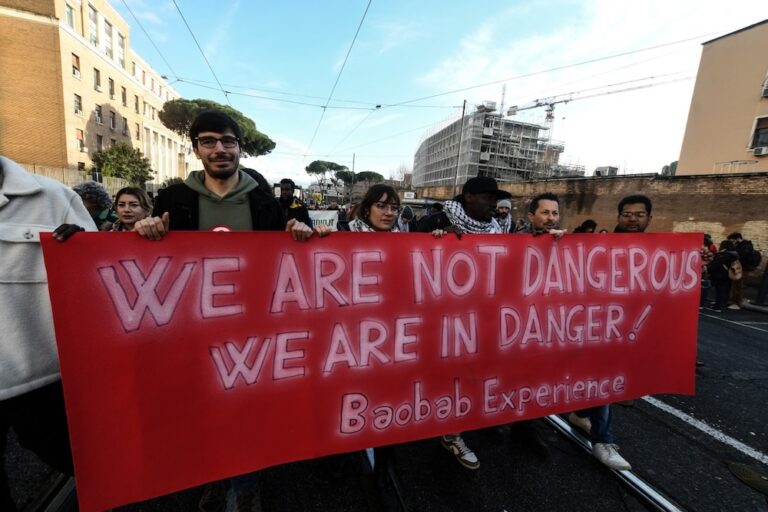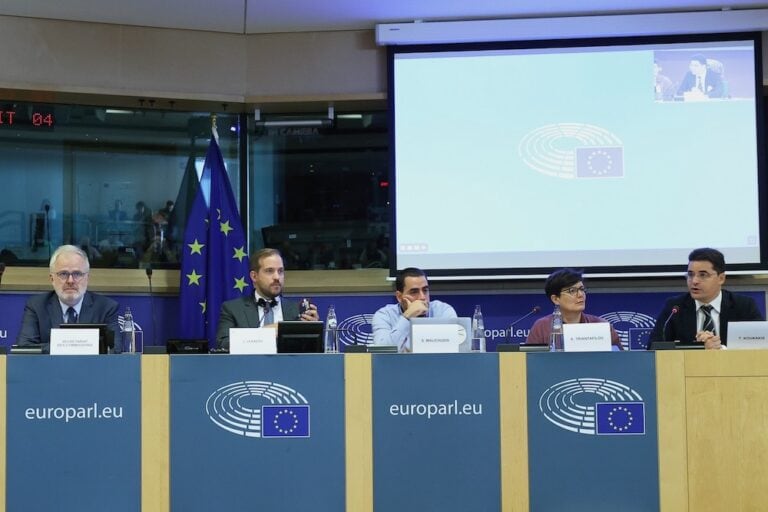(IPI/IFEX) – The following is a 29 June 2002 IPI press release: IPI CRITICISES PRESSURE ON THE ITALIAN MEDIA AND NOTES AN EXISTING FAILURE TO KEEP POLITICS AT ARMS-LENGTH The International Press Institute (IPI), the global network of editors, media executives and leading journalists, is deeply critical of the treatment of journalists Enzo Biagi and […]
(IPI/IFEX) – The following is a 29 June 2002 IPI press release:
IPI CRITICISES PRESSURE ON THE ITALIAN MEDIA AND NOTES AN EXISTING FAILURE TO KEEP POLITICS AT ARMS-LENGTH
The International Press Institute (IPI), the global network of editors, media executives and leading journalists, is deeply critical of the treatment of journalists Enzo Biagi and Michele Santoro, who are known for their criticism of Prime Minister Silvio Berlusconi, and the cancellation of their political programmes, allegedly due to pressure from the Italian government.
According to Italian media reports on 23 June, the public broadcaster RAI announced that Il Fatto and Scisuscia, two of RAI’s most successful programmes, were being cancelled. The decision follows criticism from Prime Minister Berlusconi.
In April, Biagi and Santoro were accused by Berlusconi of making “criminal use of public television.” Berlusconi went on to criticise RAI by saying that they should “not allow this to happen again.” One month later, in May, the Berlusconi government asked the public broadcaster to suspend the journalists’ programmes prior to local elections. According to IPI’s sources, incidents which may have displeased the government included Sciuscia’s investigation into the alleged Mafia connections of one of Berlusconi’s closest associates and Biagi’s hosting of comedian Roberto Benigni, who said he was voting for Berlusconi’s rival in general elections last year.
Responding to the criticism, the management of RAI claimed that poor viewer ratings were behind the cancellations. However, opposition members of parliament claimed that the Berlusconi government was carrying out its veiled threat to purge public television. Francesco Rutelli, leader of the centre-left opposition coalition, said, “It’s a shame if they think they’ll drive out different opinions.”
The views of the government would appear to be supported by the RAI administration board, which expressed concern over the programmes. Three of the five board members were appointed in February 2002 and are apparently allies of Berlusconi’s Forza Italia party. The president of RAI, Antonio Baldassarre, is also thought to be close to the Berlusconi government.
Speaking of the present situation, IPI Director Johann P. Fritz said, “An independent media ensures political accountability. By applying pressure on the media, the Italian government is denying the public the right to receive a plurality of views. The government and Mr. Berlusconi must learn to accept that criticism is essential to a democracy and society is undermined without criticism of political institutions. Rather than threatening the media, the government should accept the challenge of rejecting the accusations by entering into a dialogue which seeks to put forward the government’s views.”
Regarding Berlusconi’s holdings in the media, Fritz went on to say, “The holdings of Mr. Berlusconi must either be sold or held at arms-length and he should refrain from speaking out against the media. The need to ring-fence the media from political pressure is of immediate concern and the government should move swiftly to ensure that there is no repetition of the Biagi and Santoro affair.”


